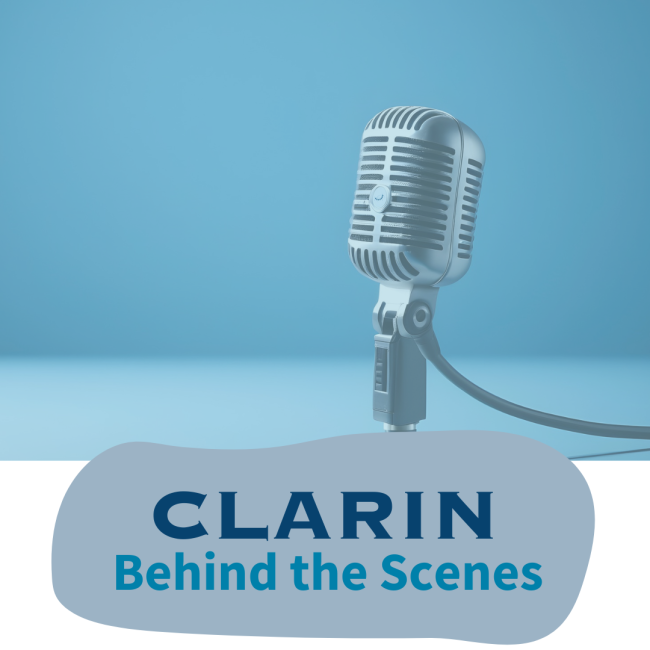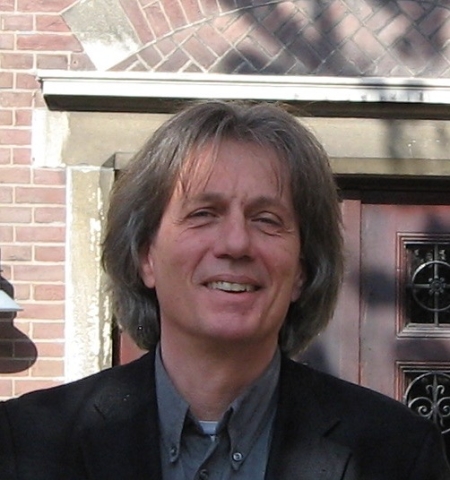
In our ‘Behind the Scenes’ series, we introduce the people who work for and use our infrastructure. In the series, we will feature pioneers, researchers, ambassadors, committee chairs, PhD students, and more. This month, we welcome Martin Everaert, one of CLARIN’s pioneers.
Please introduce yourself. What is your background?
I studied Dutch (BA) and Linguistics (MA). Finishing university in 1979, there were not many job opportunities. Steven Krauwer was my teacher when I studied linguistics, and back then I was interested in what he and Louis des Tombe were doing in the Eurotra translation project. So, I applied for jobs in computational linguistics, failed, and became a ‘theoretical’ linguist, receiving my PhD in 1986. After a short stay at Tilburg University, I started working for the Utrecht Research Institute. From 2002 to 2007, I was director of the Netherlands Graduate School of Linguistics, from 2003-2004 affiliated to Radboud University in Nijmegen, and from 2004 professor of Linguistics in Utrecht. From 2013 to 2015 I was acting director at the Institute for Dutch Lexicology (Leiden), which is part of CLARIAH-NL or, as it was known then, CLARIN-NL.
You are one of CLARIN’s pioneers. How did you first get involved?
This is a difficult exercise; I forget quite easily. What Peter Wittenburg wrote brought back some memories. As director of the Netherlands Graduate School of Linguistics and director of the research institute of Linguistics in Utrecht, I was directly involved in the Langweb proposal, submitted by Utrecht University to the Integrated Infrastructure Initiative in late 2004 and early 2005. In it, 41 universities and research centres from 15 countries combined forces. It built on earlier (funded) initiatives in the domain of typological resource networks, in which the Max Planck institute (MPI), i.e. Peter Wittenburg, played an important role.
The Langweb proposal was not successful. Later that year, Steven Krauwer and I had contact about filling in the questionnaire ‘Mapping of potential new pan-European RIs to be recommended for consideration Social Sciences and Humanities’, making use of the Langweb proposal. Steven filled in the questionnaire, and I signed on behalf of the Utrecht research institute. Later it became clear that there were three relevant proposals, ours, as well as one from Peter Wittenburg (MPI) and one from Tamás Váradi (HAS). From then on, Steven Krauwer took over as I had too much other work, and he had all the time in the world (being on the point of retiring), and he knew how to make it work.

'I remember that, as linguists, Tamás and I exchanged thoughts about what CLARIN should be about. We agreed that CLARIN was not mainly about language technology, but making use of language technology to create resources that can be used by the humanities community'.
Martin Everaert, one of CLARIN's pioneers
Can you describe what the first few years were like?
I was only actively involved in the very first phase of CLARIN. Peter, Steven and Tamás were doing the real work and created something that was successful. I had worked with Peter before, and experienced first-hand why Pim Levelt, the founding director of the MPI, gave him carte blanche on behalf of the MPI. I also remember that, as linguists, Tamás and I exchanged thoughts about what CLARIN should be about. We agreed that CLARIN was not mainly about language technology, but making use of language technology to create resources that can be used by the humanities community (including linguistics).
Is there anything that has surprised you in CLARIN’s development?
Nothing surprising, I am only glad that in the Netherlands CLARIN developed into CLARIAH (Common Lab Research Infrastructure for the Arts and Humanities), a national counterpart to CLARIN and DARIAH.
How do you see CLARIN 10 years from now?
I have been on (advisory) boards of CLARIN.NL and CLARIAH for a very long time, but this is difficult to say. CLARIN is still dependent on funding that differs from country to country. For the Netherlands, for instance, it is clear that the research infrastructure heavily depend on the support of research institutes that are independent of universities. But users mainly work in the universities; that needs to be solved. If that happens, the infrastructure will also be more effectively and regularly used by both researchers and students, truly enriching research in the humanities.